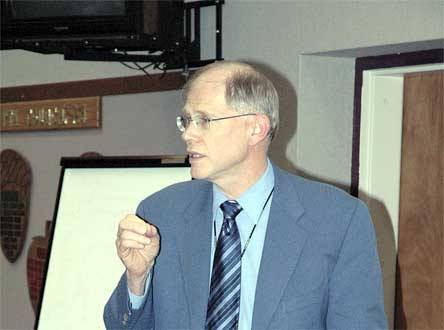MARYSVILLE — With the state Legislature set to consider Gov. Chris Gregoire’s initial budget proposal to suspend levy equalization, Marysville School District Superintendent Dr. Larry Nyland explained how much this state spending tool means to school districts such as Marysville.
Levy equalization directs additional funds to school districts with smaller property tax bases. Nyland noted that Seattle is able to spend nearly $7,400 per student on teaching, while Marysville spends slightly more than $6,200. In spite of this, Seattle residents pay less than $1 in taxes per $1,000 of assessed valuation on their property, while Marysville residents pay close to $2.50.
After courts found, roughly 30 years ago, that school funding in Washington was inequitable, a compromise was reached under which certain levies were grandfathered in at 33 percent, similar to those of Seattle, while most were set at a maximum amount of 24 percent that a levy could fund, such as in Marysville, with a levy equalization of 12 percent. Without levy equalization, Marysville could lose $3 million in funds, while Seattle would lose no funds at all.
According to Nyland, schools with less taxable property have fewer local resources, which leads to them spending less on teaching and seeing greater achievement gaps between the rich and the poor. He expressed concerns that schools that failed to make adequate yearly progress as a result would be labeled as “failing schools” and forced to offer student transportation to other schools, which he believes could result in test scores falling further and schools becoming even more segregated.
The Marysville School District has already weathered $6.5 million in budget cuts and is looking to pass a new bond and levy issue this year, with an election set for Feb. 9, but its Budget Study Team will need to find a way stretch the school district’s dollars regardless of outcomes at the local or state levels.
“If this levy doesn’t pass, we lose 24 percent of our budget,” Nyland said.
The Budget Study Team will meet Feb. 11, 16 and 23, and March 2, 16 and 23, and will develop a priority list of expenses through work study sessions with the school district Board of Directors and through a series of town meetings. With state Legislature votes on issues such as levy equalization expected to take place around the middle of March, Nyland pointed out that the Budget Study Team will need to develop two budgets, depending on how that vote goes.
“Last year, we RIFed 57 teachers, but were able to hire 17 teachers back due to resignations,” Nyland said. “I’m uncomfortable creating anxiety about people’s jobs. The total cuts might be similar this year, but we don’t have a lot of retiring teachers.”
Non-renewal notifications must be sent to certificated personnel on or before May 15.
The bond requires a vote of 60 percent to pass, while the levy only requires a vote of 50 percent plus one.



